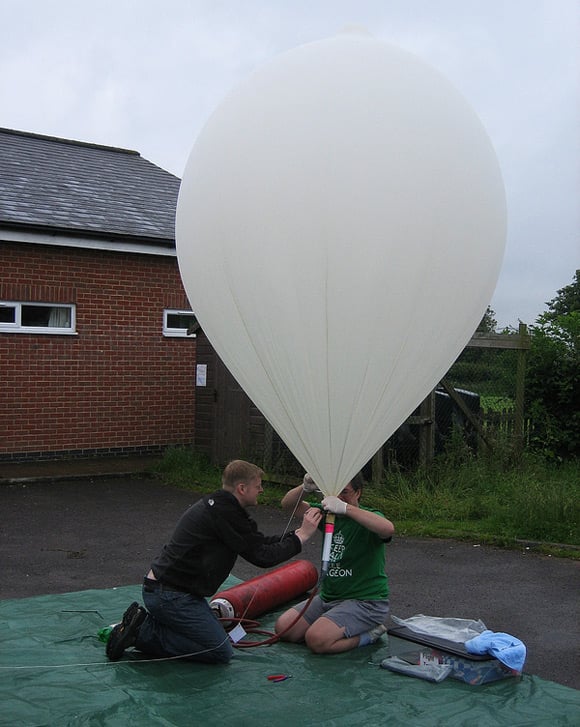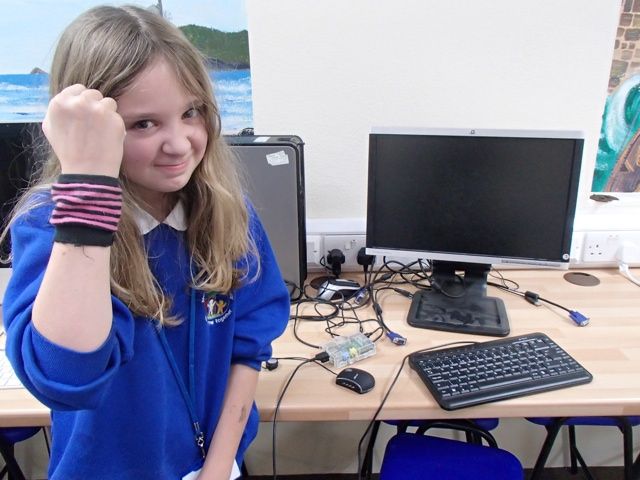This article is more than 1 year old
Bash Street bytes: Do UK schools really need the Raspberry Pi?
Does Britain really need to be a nation of coders?
Not a total raspberry
Such inventions are fantastic classroom talking points for kids, and really get them thinking about how technology works. Even if they don’t leave the lesson knowing a programming language any better than they did before, they’ve still encountered and used logical thinking processes. This kind of kit is also a great way to inspire children with a coding inclination to get tinkering.
Richard Lander’s head of ICT, Jenny Griffiths, says there’s a “real place for programming boards”, but she also knows that, realistically, the number of students who have a sustainable interest in a subject like programming is “capped at around 20 per cent of children”. And that’s probably being generous.

Pi in the Sky: the board is great for science projects not just coding lessons
Bryan Pearce, deputy head of Swallow Hill Community College, Leeds, agrees. The Pi, he says, will not turn Britain into a nation of programmers. “For some children it really pushes a switch, for others it leaves them cold. It’s not for everyone.”
So when Ian Livingstone, co-founder of Games Workshop and a senior UK games publisher figure, suggests that Raspberry Pis should be given to “every child in the country”, he ought to think carefully about the vastly varied demographic he’s referring to. Most RPis would end up gathering dust in drawers or sold on eBay, and even worse: it could confirm to some kids that coding really is a foreign and difficult world that they will never want, or be able to, understand.
10 This is boring
20 Let’s go play football / smoke fags
30 Go to “The Park”
It doesn’t mean some Raspberry Pis shouldn’t be distributed for free. Indeed, code-minded children will come up with some amazing work. How’s this for a better distribution model? Run a lunchtime club to show off the Raspberry Pi, its capabilities and potential. If children show up and give it a go for two or three sessions, then give those kids a Raspberry Pi – heck, give them two.
Free Pi
Some exposure to programming boards – and, importantly, the logical thought involved in make use of such technology – can benefit many children, even at a young age, and will inspire some to get involved further. The Pi is a great device for granting the next-generation of hobbyist programmers and electrical engineers early access to the coding world – but in schools it works best in particular circumstances only.

So the HDMI lead you brought in is a slightly different spec and won’t work with our monitors? Um, see you next week.
Source: Giles Hill
It can be useful in the context of Computing at GCSE and above. It may also work with small groups of children who are interested in coding and have the inquisitive perseverance that the Raspberry Pi requires – extra-curricular coding clubs are a fantastic idea. Furthermore, there’s no reason why small, higher-ability groups of children (of any age) with a flair for coding can’t be challenged with Pi projects by teachers in mainstream lessons.
The Raspberry Pi is a tool for investigation, a toybox for those kids who’ve just begun their obsession with computers. And while that makes it a wonderful learning device for some, by the same token it also makes it unsuitable for teaching ‘average Joe and Josephine’.
If schools attempt to teach coding to every child using Raspberry Pis alone, there are going to be some awfully frustrated teachers out there, trapped in a haze of code, USB leads and broken HDMI connectors, and some ridiculously bored children as well. That would be a real shame for everyone. ®
